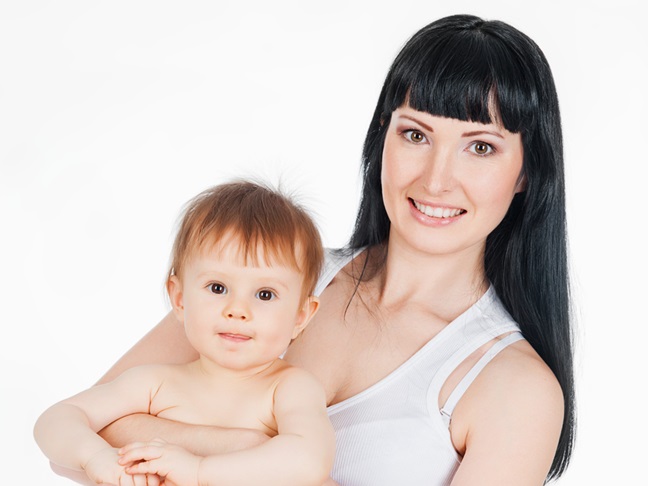Play Helps Babies Feel Loved
Even when your child is an infant, you’re engaging him in play simply by doing what comes naturally to you as a new parent. When you spend face-to-face time talking to your baby, massaging him after a bath, singing to him during a diaper change, or playing games like peekaboo with him, you’re showing your child that you enjoy being with him and that you’re capable of meeting his needs. With this comes the development of trust, a sense of security, and a strong attachment to you, all of which are vital to your child’s emotional health and development.
Play Builds Verbal and Nonverbal Communication Skills
When you smile at your baby and he smiles back, it feels good. Early face to face interactions during play teach your baby a lot about verbal and nonverbal communication. As babies, children learn how sounds, gestures, facial expressions and vocal tones are used to communicate. And this happens at an exceptionally young age. At around three months of age, your baby will already be a master of what is called “smile talk,” the flashing of a broad smile followed by gurgling to get your attention and signal he’s ready to begin a chat with you. When your baby gurgles and coos at you and you respond, you’re reinforcing his early attempts at communication.
Play Helps Babies Learn to Interact With Others
While your baby won’t be an expert sharer anytime soon, early playtime interactions introduce him to the world of give and take—and not only with toys, with emotions too. As your baby grows and develops, so will his understanding of how his actions affect other people’s feelings and actions. He’s discovering that if he laughs, you’ll continue playing peekaboo with him, but if he cries, you’ll stop. He’s also learning to respond to the feelings of others. If he sees a friend crying, you may notice that he looks concerned and that he even may attempt to crawl over to be closer to his distressed buddy.
Play Facilitates the Development of Relationships
When it comes to the development of social and emotional skills, it starts with relationships. It’s through parental relationships that the foundations of all future relationships are built. Play provides a natural opportunity for relationships to flourish. During play, bonding and connections happens naturally. When you engage your baby in play, you are also modeling appropriate social interactions and providing her with a real-time how-to guide for interacting with those in her world. This will be important when she begins building her first peer friendships or is left in the care of another trusted caregiver.
Play Allows for Emotional Exploration
When engaged in play, children have the opportunity to explore their emotions in a safe environment. While your little one can’t have chocolate cake for breakfast in the real-world, when she’s playing in the world of pretend she can experience what it’s like to eat what she wants when she wants She can also work on her problem-solving skills and use her imagination. During play children can experience what it’s like to be the boss and have complete control over their world, even if just for a little while.
Play Helps Children Cope with Feelings
Play gives children the opportunity to work out their feelings in a safe way, which can give them the confidence boost that they needs to tackle new or challenging situations. Specifically, pretend play lets children create stories where they can act out the feelings they can’t quite express. When your little one gets her pocketbook and pretends she’s heading out the door to work, for example, it’s likely her way of processing her feelings related to the separation she experiences when you head off to work each day.
Play Encourages Self-Confidence
During play, babies have the opportunity to try new things. They may try to play with a toy a different way, master a new task or skill and even tackle new challenges. By watching, interacting with, and supporting your child’s playtime, you send the message that you value her interests and that you believe in her abilities and capabilities. A simple “I knew you could find the cow!” or “Good job, you brought me your teddy!” will go a long way in building your child’s self-confidence and self-esteem.








